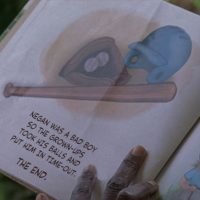
A genealogical study of the Korean Chosun dynasty published in Current Biology found eunuchs lived nearly 20 years longer than their contemporaries and had 130 times more centenarians than the modern male population.
“Interestingly, out of the 81 eunuchs, three were centenarians, aged 100, 101, and 109 years,” notes the study. “The current incidence of centenarians is one per 3,500 in Japan and per 4,400 in the United States.”

The lifespan of eunuchs and non-eunuchs displayed as box plots. The box encompasses the 25th–75th percentile of the data with the median shown as a solid horizontal line. The top and bottom lines indicate the maximum and minimum lifespan for each family, respectively.
“In order to eliminate socioeconomic factors that could have affected lifespan, the lifespan of the eunuchs was compared to the lifespan of men from other Yan-ban (noble class) families with a similar socioeconomic status,” Min told the AFP. “To exclude genetic factors that could have affected the lifespan, we compared the lifespan of eunuchs with multiple Yan-ban families.”
The researchers believe the increased lifespan could be a result of reduced levels of testosterone, which can weaken the immune system and increase the chances of heart disease. It would explain why women tend live longer.
“This discovery adds an important clue for understanding why there is a difference in the expected life span between men and women,” they said a press release. “For better health and longevity, stay away from stresses and learn what you can from women.”





